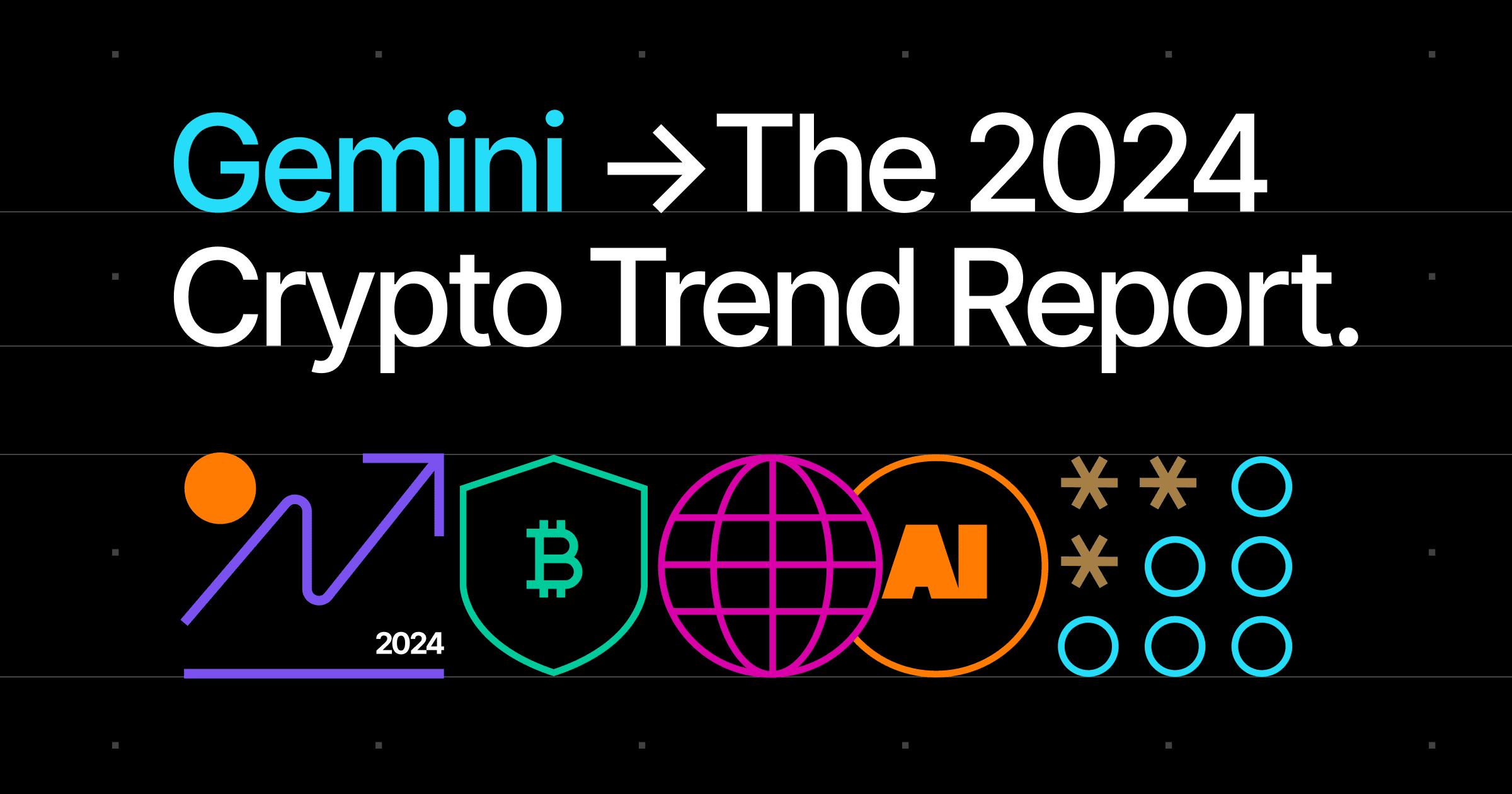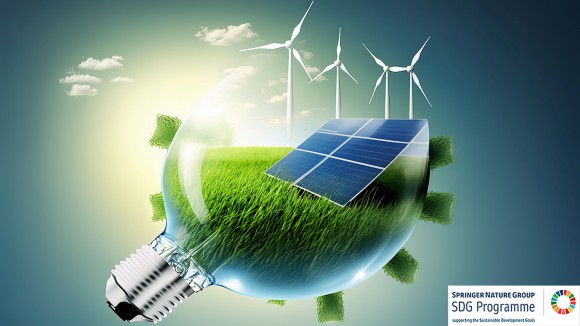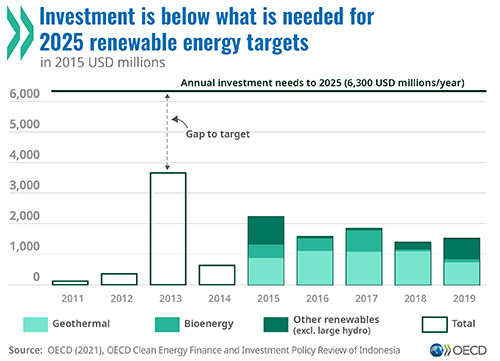

Exploring Vikasolaacute: Revolutionizing Sustainable Technology
Innovative Solutions for a Greener Future
Vikasolaacute emerges as a beacon of hope in the realm of sustainable technology, pioneering innovative solutions aimed at addressing the pressing environmental challenges of our time. With a commitment to driving positive change, Vikasolaacute is reshaping the landscape of green technology and leading the charge towards a more sustainable future.
Advancing Environmental Practices
At the core of Vikasolaacute’s mission is a dedication to advancing environmental practices through cutting-edge technology and forward-thinking innovation. By harnessing the power of renewable energy sources and implementing eco-friendly solutions, Vikasolaacute is driving meaningful progress towards a cleaner, greener planet.
Pioneering Eco-Friendly Innovation
Vikasolaacute stands at the forefront of eco-friendly innovation, pushing the boundaries of what’s possible in sustainable technology. From solar energy solutions to waste management systems, Vikasolaacute’s innovative approach is revolutionizing the way we think about environmental sustainability and paving the way for a brighter, more sustainable future.
Shaping Sustainable Development
With a focus on sustainable development, Vikasolaacute is committed to creating solutions that not only mitigate environmental impact but also foster social and economic growth. By integrating sustainability into every aspect of its operations, Vikasolaacute is shaping a future where environmental responsibility goes hand in hand with economic prosperity.
Driving Positive Change
Vikasolaacute’s dedication to driving positive change extends beyond its innovative technologies to encompass a holistic approach to sustainability. Through partnerships with communities, governments, and industry stakeholders, Vikasolaacute is working to create a more sustainable world for future generations.
Building a Greener Tomorrow
As we look to the future, Vikasolaacute remains steadfast in its commitment to building a greener tomorrow. By investing in research, development, and education, Vikasolaacute is laying the groundwork for a sustainable future where environmental stewardship is the norm rather than the exception.
Embracing Sustainable Practices
At Vikasolaacute, sustainability isn’t just a buzzword – it’s a way of life. From reducing carbon emissions to conserving natural resources, Vikasolaacute is dedicated to embracing sustainable practices at every level of its operations, setting an example for others to follow.
Fostering Innovation and Collaboration
Central to Vikasolaacute’s success is its commitment to fostering innovation and collaboration within the sustainable technology sector. By working closely with industry partners, academic institutions, and research organizations, Vikasolaacute is driving forward the pace of innovation and accelerating progress towards a sustainable future.
Leading the Charge Towards Sustainability
In conclusion, Vikasolaacute stands as a shining example of what’s possible when innovation meets environmental stewardship. With its pioneering spirit, commitment to sustainability, and dedication to driving positive change, Vikasolaacute is leading the charge towards a greener, more sustainable future for all. Read more about vikasolaacute


The Evolution of Blockchain in Finance: 2024
The year 2024 marks a significant juncture in the integration of blockchain technology within the financial sector. From reshaping transactions to revolutionizing traditional systems, blockchain’s impact on finance continues to expand, ushering in transformative changes.
Blockchain’s Role in Transaction Security and Transparency
Blockchain technology in finance continues to strengthen transaction security and transparency. Its decentralized ledger system ensures immutability and transparency, reducing the risks of fraud and errors. Smart contracts automate and enforce agreements, enhancing trust between parties without intermediary involvement.
Blockchain in Finance 2024 serves as a knowledge hub, exploring the latest advancements and trends in this domain. This platform provides insights into the evolving landscape of blockchain within finance, shedding light on its multifaceted applications and implications.
Tokenization and Digital Assets
The year 2024 witnesses a surge in tokenization and digital asset utilization within finance. Assets are tokenized, enabling fractional ownership and facilitating the trade of traditionally illiquid assets. This innovation opens avenues for greater accessibility and liquidity in financial markets.
Decentralized Finance (DeFi) Ecosystem Expansion
Decentralized Finance (DeFi) experiences substantial growth in 2024. DeFi protocols offer various financial services, including lending, borrowing, and yield farming, without relying on traditional banks. This ecosystem’s expansion reflects a shift towards democratizing financial services and increasing financial inclusivity.
Blockchain in Finance 2024 bridges the gap between technology and finance, highlighting the symbiotic relationship reshaping the industry. This platform serves as an information repository, elucidating the potential disruptions and innovations introduced by blockchain technology.
Regulatory Evolution and Compliance Challenges
The increasing adoption of blockchain prompts regulatory evolution and compliance challenges. Regulatory frameworks struggle to keep pace with the dynamic nature of blockchain, necessitating adaptable policies that balance innovation with consumer protection and financial stability.
Cross-Border Payments and Remittances
Blockchain-powered solutions streamline cross-border payments and remittances in 2024. The technology’s speed and cost-effectiveness significantly reduce transaction times and fees, benefitting individuals and businesses globally.
Sustainability and Environmental Concerns
While blockchain presents numerous advantages, concerns about its energy consumption persist. The environmental impact of blockchain’s energy-intensive consensus mechanisms prompts discussions on sustainable alternatives and mitigation strategies.
Blockchain in Finance 2024 navigates the complexities and innovations in the intersection of blockchain and finance. It acts as a catalyst for understanding the implications and opportunities arising from this transformative technology within financial ecosystems Finance .
Integration Challenges and Future Outlook
Integrating blockchain technology into existing financial infrastructures poses challenges. Scalability, interoperability, and user adoption hurdles persist, necessitating ongoing technological advancements and industry collaborations. Looking ahead, blockchain’s future in finance promises continued disruption and refinement, shaping a more efficient and inclusive financial landscape.
Blockchain in Finance 2024 encapsulates the ever-evolving narrative of blockchain’s integration into finance, underscoring its potential to redefine traditional systems and foster financial innovation.

Embracing Sustainability: Your Guide to Home Solar Panel Systems
In the quest for a greener lifestyle, home solar panel systems have emerged as a beacon of sustainable energy. Let’s delve into the world of solar power and explore how it can transform your home.
Harnessing the Power of the Sun
At the core of home solar panel systems is the ability to harness the abundant power of the sun. These systems convert sunlight into electricity, providing an eco-friendly alternative to traditional energy sources. By utilizing solar panels, you not only reduce your carbon footprint but also tap into a nearly limitless source of clean energy.
Understanding How Home Solar Panel Systems Work
Solar panels, typically mounted on rooftops, consist of photovoltaic cells that capture sunlight. When sunlight hits these cells, it generates a flow of electricity. This direct current (DC) electricity is then converted into alternating current (AC) by an inverter, making it compatible with your home’s electrical system. The result? A sustainable and efficient power source.
Financial Benefits of Solar Investment
Investing in a home solar panel system is not just about environmental impact; it’s a savvy financial move. Many governments offer incentives, tax credits, and rebates to encourage solar adoption. Additionally, with the cost of solar technology decreasing, the long-term savings on energy bills make it a sound economic decision for homeowners.
Choosing the Right Solar System for Your Home
The market offers a variety of solar panel systems, each catering to different needs. From grid-tied systems that connect to the local utility grid to off-grid systems for total energy independence, there’s a solution for every homeowner. Evaluate your energy consumption, local climate, and budget to determine the system that best suits your lifestyle.
Installation Process Made Simple
Contrary to common misconceptions, installing a home solar panel system is a straightforward process. Certified professionals assess your home’s suitability, design the system, and handle the installation. The transition to solar power is smoother than ever, ensuring minimal disruption to your daily life.
Monitoring and Maintenance
Once your home solar panel system is up and running, monitoring its performance becomes essential. Many systems come equipped with monitoring tools that allow you to track energy production. Regular maintenance, although minimal, ensures optimal efficiency and longevity. It’s a hands-off investment that pays off in the long run.
Environmental Impact and Energy Independence
Beyond the financial benefits, adopting a home solar panel system significantly reduces your environmental impact. Solar energy is clean and renewable, contributing to a reduction in greenhouse gas emissions. Moreover, by generating your electricity, you take a step towards energy independence, lessening reliance on conventional power sources.
Integrating Solar Technology into Home Design
As solar technology evolves, it seamlessly integrates into home design. Solar panels are no longer eyesores but can enhance the aesthetic appeal of your property. With innovations like solar roof tiles and customizable designs, homeowners can embrace sustainability without compromising on style.
The Future of Home Energy
The future of home energy lies in the hands of those who embrace solar solutions. It’s not just about keeping up with a trend; it’s about actively contributing to a sustainable future. Click here to explore the possibilities of a home solar panel system and take the first step towards a brighter, more sustainable tomorrow.

Unveiling the Future: Whole Home Solar System Brilliance
Embracing sustainability is no longer a distant dream with the advent of whole home solar systems. Let’s delve into the revolutionary concept of powering your entire home with solar energy and the unparalleled benefits it brings to the table.
A Holistic Approach to Solar Power
The beauty of a whole home solar system lies in its holistic approach to energy production. Unlike individual solar panels that may cover only a fraction of your energy needs, a whole home system is designed to cater to your entire electricity consumption. It’s a comprehensive solution that transforms your home into a self-sufficient powerhouse.
Efficiency Redefined with Advanced Technology
The heart of a whole home solar system is advanced technology. These systems incorporate the latest innovations in solar panel efficiency, energy storage, and smart grid integration. This amalgamation of technologies ensures optimal performance, allowing homeowners to maximize their energy production and minimize dependence on external power sources.
Tailored Solutions for Every Home
Whole home solar systems are not one-size-fits-all solutions. They can be customized to meet the unique energy needs of different homes. Whether you have a spacious suburban residence or a cozy urban apartment, there’s a whole home solar system that can be tailored to your specific requirements, making clean energy accessible to a diverse range of homeowners.
Comprehensive Energy Independence
With a whole home solar system, the concept of energy independence takes center stage. By generating your electricity, you free yourself from the constraints of conventional power grids. This not only provides a sense of autonomy but also insulates your home from external factors that may affect the stability of traditional energy sources.
Reducing Utility Bills, Increasing Savings
One of the immediate and tangible benefits of a whole home solar system is the significant reduction in utility bills. As your home becomes a self-sustaining energy producer, you draw less power from the grid, translating into substantial savings. It’s a wise financial investment that pays off not just in the long run but often from the very moment your system goes live.
Environmental Impact: A Greener Tomorrow
Beyond the financial gains, adopting a whole home solar system is a powerful environmental statement. By relying on clean, renewable energy, you contribute to a reduction in carbon emissions and promote a greener, more sustainable future. It’s a small yet impactful step towards mitigating the effects of climate change on a personal and global scale.
Smart Integration for Seamless Living
Modern whole home solar systems go beyond just generating electricity. They seamlessly integrate with smart home technologies, allowing you to monitor and control your energy consumption with ease. From adjusting settings remotely to receiving real-time insights, smart integration enhances the overall efficiency and convenience of your sustainable lifestyle.
Government Incentives: Making Solar Accessible
Governments around the world are actively encouraging the adoption of solar energy, and whole home systems are no exception. Various incentives, rebates, and tax credits are available to homeowners who choose to invest in clean energy solutions. These financial benefits make the transition to a whole home solar system even more appealing and accessible.
Whole Home Solar System: Your Gateway to Brilliance
Ready to explore the brilliance of a whole home solar system? Click here to discover the possibilities and take the first step towards transforming your home into a sustainable powerhouse. A whole home solar system is not just a technology; it’s a visionary approach to living that embraces a brighter, cleaner, and more sustainable future.

Empowering Communities Government Solar Panels Initiative
Miracle February 5, 2024 ArticleEmpowering Communities: Government Solar Panels Initiative
Lighting the Way to a Sustainable Future
In a world where environmental concerns are at the forefront, governments worldwide are stepping up to the plate. The implementation of government-sponsored solar panel initiatives is becoming a shining beacon of hope for a greener and more sustainable future.
Harnessing Solar Power for the Masses
Government solar panel initiatives aim to make the power of the sun accessible to the masses. By investing in solar technology, governments are not only reducing their carbon footprint but also empowering communities to take control of their energy consumption. It’s a win-win situation for both the environment and the people.
Promoting Energy Independence
One of the primary goals of government-sponsored solar panel programs is to promote energy independence. By providing citizens with the means to generate their electricity, governments are lessening dependence on traditional power sources. This shift towards energy self-sufficiency is a significant step towards a more resilient and sustainable energy infrastructure.
Economic Boost Through Green Technology
Government initiatives are not just about environmental impact; they are also about boosting the economy. The investment in solar technology creates jobs in the renewable energy sector, fostering economic growth. As the solar industry expands, so does the potential for innovation and job opportunities, contributing to a more robust and diverse economy.
Incentivizing Solar Adoption
To encourage citizens to embrace solar technology, governments often offer incentives and subsidies. These can range from tax credits to reduced energy bills for households utilizing solar panels. These incentives make the transition to solar power not only environmentally conscious but also financially appealing for individuals and businesses alike.
Addressing Climate Change Head-On
With the looming threat of climate change, governments are increasingly recognizing the need for immediate action. Solar panel initiatives play a pivotal role in mitigating climate change by reducing greenhouse gas emissions. Governments are taking a proactive stance to address environmental challenges, emphasizing the importance of collective responsibility.
Navigating Challenges for a Sustainable Tomorrow
While government solar panel initiatives are undoubtedly a step in the right direction, challenges persist. Issues such as initial costs, public awareness, and infrastructure development need careful consideration. Governments are actively working towards solutions, ensuring a smooth transition to a solar-powered future.
Community Engagement and Education
Effective implementation of solar initiatives goes hand in hand with community engagement and education. Governments are investing in outreach programs to educate citizens about the benefits of solar power and how to make the most of government-sponsored initiatives. Knowledge is key to fostering widespread adoption and creating a culture of sustainability.
The Role of Technology and Innovation
Advancements in solar technology are continually shaping the landscape of renewable energy. Government initiatives often include provisions for research and development, driving innovation in solar panel efficiency, storage solutions, and integration into existing power grids. This commitment to technological progress ensures that solar power remains a viable and evolving solution for the future.
Government Solar Panels: A Step Towards a Greener Tomorrow
Government-sponsored solar panel initiatives are more than a policy – they are a commitment to a sustainable future. By empowering communities, promoting green technology, and addressing climate change, governments are laying the foundation for a world where clean energy is not just a choice but a way of life. Click here to learn more about the impact of government solar panels on communities and the environment.
/cdn.vox-cdn.com/uploads/chorus_image/image/56872747/shutterstock_326698985.0.jpg)
/cdn.vox-cdn.com/uploads/chorus_image/image/56872747/shutterstock_326698985.0.jpg)
Renewable Energy Policies: Driving Sustainable Change
Renewable energy policies stand as pivotal instruments shaping the transition towards a more sustainable energy landscape, steering economies and industries towards cleaner and greener practices.
Promoting Investment and Innovation
Renewable energy policies serve as catalysts for investment in clean energy technologies. They incentivize innovation in solar, wind, hydro, and other renewable sources by offering financial incentives, subsidies, and tax breaks, fostering technological advancements.
Reducing Carbon Footprint
At the heart of renewable energy policies lies the goal to mitigate climate change by reducing reliance on fossil fuels. These policies set targets for renewable energy adoption, aiming to curb greenhouse gas emissions and create a more sustainable energy mix.
As the world progresses towards sustainable energy practices, platforms like Renewable Energy Policies act as repositories of knowledge, showcasing the impact and evolution of renewable energy policies.
Job Creation and Economic Growth
Renewable energy policies not only contribute to environmental benefits but also stimulate job creation and economic growth. The renewable energy sector generates employment opportunities, fosters innovation, and drives economic development in regions investing in clean energy.
Technological Advancements and Infrastructure Development
Policy-driven commitments to renewable energy drive technological advancements. Research and development in renewable energy technologies lead to improved efficiency, storage capabilities, and grid integration, facilitating a robust and reliable renewable energy infrastructure.
Global Collaboration and Agreements
International cooperation plays a crucial role in advancing renewable energy policies. Agreements and collaborations among nations foster knowledge sharing, technology transfer, and collective efforts towards achieving global renewable energy targets.
Challenges and Policy Implementation
Implementing renewable energy policies faces challenges. These include resistance from traditional energy sectors, intermittency issues in renewable sources, grid integration complexities, and the need for regulatory frameworks that encourage investment.
As the world navigates the complexities of energy transition, Renewable Energy Policies platforms provide insights and updates on the evolving landscape of renewable energy policies and their global impact.
Community Engagement and Public Awareness
Public engagement and awareness are crucial in driving the success of renewable energy policies. Community initiatives, education, and awareness campaigns foster public support, encouraging widespread adoption of renewable energy practices.
Incentivizing Decentralized Energy Production
Renewable energy policies aim to incentivize decentralized energy production. Encouraging small-scale renewable energy installations empowers communities, promoting energy independence and resilience.
Long-Term Vision for Sustainability
Renewable energy policies set the foundation for a sustainable energy future. They lay the groundwork for transitioning towards cleaner, more resilient, and affordable energy systems to meet the demands of future generations.
Exploring platforms like Renewable Energy Policies unveils the progress and challenges in implementing policies that drive the global shift towards renewable energy, fostering a sustainable and greener future.


Renewable Energy Tech: Exploring the Latest Advances
Renewable energy technology continues to evolve, pushing the boundaries of innovation in sustainable power generation. From solar to wind, and beyond, these advancements are reshaping the landscape of energy production. Let’s delve into some groundbreaking developments that are propelling us toward a greener future.
Solar Power Efficiency Enhancements
One of the most prominent areas of advancement lies in solar power efficiency. Engineers and researchers have been tirelessly working to boost the efficiency of solar panels, aiming to capture more energy from the sun’s rays. Innovations like multi-junction solar cells and perovskite solar technology have shown promising results, significantly increasing the conversion efficiency of solar panels. These improvements pave the way for greater energy production from the same surface area, making solar power more accessible and cost-effective for widespread adoption.
Revolutionizing Wind Energy Generation
In the realm of wind energy, technological strides are transforming the efficiency and applicability of wind turbines. Advanced blade designs, using lighter and stronger materials, enhance energy capture while minimizing operational and maintenance costs. Moreover, developments in offshore wind farms have opened up vast expanses for energy production, utilizing strong and consistent offshore winds to generate substantial electricity. These advancements mark a pivotal shift in harnessing wind energy as a reliable and scalable power source.
Energy Storage Breakthroughs
The ability to store renewable energy effectively is crucial for its widespread adoption. Breakthroughs in energy storage technologies, such as grid-scale batteries and innovative storage materials, are addressing the intermittency challenge of renewables. These advancements ensure a steady supply of electricity even when the sun isn’t shining or the wind isn’t blowing. The integration of smart grids and sophisticated energy management systems further optimizes the utilization of stored renewable energy, enhancing reliability and stability within the power grid Energy Tech .
Linking Innovation to Accessibility
As these advancements continue to revolutionize the renewable energy sector, their accessibility and implementation on a global scale become increasingly important. Platforms like Renewable Energy Tech Advances play a pivotal role in disseminating information, fostering collaborations, and driving innovation forward. By providing insights into the latest breakthroughs and facilitating knowledge-sharing among industry experts, platforms like this contribute significantly to accelerating the adoption of renewable energy technologies worldwide.
Renewable energy holds the promise of a sustainable future, and these technological advances underscore its potential to redefine our energy landscape. As innovations continue to drive progress, collaboration, and accessibility will be instrumental in realizing the full potential of renewable energy and steering us toward a more environmentally conscious and energy-efficient world.

Energizing Tomorrow: Strategic Renewable Energy Investments
Miracle January 19, 2024 Article
Empowering the Future: Introduction
In the pursuit of a sustainable future, Renewable Energy Investment emerges as a crucial driver. This article explores the strategic significance of investing in renewable energy, unraveling the transformative impact it has on the global energy landscape and the promising prospects it holds for investors.
The Imperative for Renewable Energy Investment
The imperative to transition to renewable energy sources stems from the urgent need to mitigate climate change and reduce dependence on fossil fuels. Renewable Energy Investment plays a pivotal role in accelerating this transition, fostering the development of cleaner, more sustainable energy systems that align with environmental goals.
To delve deeper into the strategic importance of Renewable Energy Investment, visit Renewable Energy Investment. This platform offers insights into the latest trends and opportunities, providing a comprehensive guide for investors navigating the renewable energy landscape.
Driving Technological Advancements
Renewable Energy Investment serves as a catalyst for driving technological advancements in the renewable energy sector. As investments flow into research and development, innovative technologies emerge, enhancing the efficiency and affordability of renewable energy solutions. This cycle of investment and innovation propels the renewable energy industry forward.
Unlocking Economic Opportunities
Investing in renewable energy is not just an environmental imperative but also an economic opportunity. Renewable Energy Investment stimulates job creation, fosters economic growth, and catalyzes the development of a robust renewable energy market. Countries and regions embracing renewable energy investments position themselves at the forefront of economic transformation.
Diversifying Energy Portfolios
For investors, Renewable Energy Investment offers a strategic way to diversify energy portfolios. As the global demand for clean energy rises, investing in renewable sources provides a hedge against the volatility of traditional energy markets. Diversification through renewable energy assets ensures a more resilient and future-proof investment strategy.
Addressing Energy Security Concerns
Renewable Energy Investment contributes to addressing energy security concerns by promoting decentralized energy production. Unlike traditional energy sources that rely on centralized power plants, renewable energy projects, such as solar and wind farms, distribute energy production across various locations. This decentralization enhances energy security and resilience.
Meeting Regulatory and Policy Goals
Governments worldwide are implementing policies and regulations to encourage Renewable Energy Investment as part of broader sustainability initiatives. Investors aligning their portfolios with these regulatory frameworks not only contribute to environmental goals but also position themselves to benefit from government incentives and support.
Navigating Risks and Challenges
While Renewable Energy Investment offers promising opportunities, it is not without challenges. Investors must navigate risks such as technological uncertainties, regulatory changes, and market fluctuations. However, strategic planning, due diligence, and staying informed about the evolving renewable energy landscape can help mitigate these challenges.
Global Trends and Market Dynamics
Understanding global trends and market dynamics is essential for successful Renewable Energy Investment. The rise of energy storage technologies, advancements in grid infrastructure, and the growing demand for clean energy sources are among the key trends shaping the renewable energy market. Investors who stay abreast of these trends position themselves strategically in the evolving landscape.
The Role of Sustainable Finance
Sustainable finance mechanisms, such as green bonds and impact investing, play a crucial role in channeling capital into renewable energy projects. These financial instruments not only provide investors with opportunities to support environmentally sustainable initiatives but also contribute to the overall growth of the renewable energy sector.
Conclusion: A Sustainable Investment Frontier
Renewable Energy Investment transcends mere financial transactions; it represents a commitment to a sustainable and resilient future. As the global community strives to address climate challenges, investing in renewable energy becomes a linchpin for sustainable development. Investors venturing into this frontier not only stand to reap financial returns but also contribute to a world powered by clean and renewable energy sources.

Robotics in Agriculture: Cultivating Efficiency
Robotics in agriculture is revolutionizing traditional farming practices, introducing automation and precision techniques that enhance productivity and sustainability.
Understanding Robotics in Agriculture
Robotics integrates automation and smart technology into farming processes, offering solutions for tasks like planting, harvesting, irrigation, and pest control. This technology optimizes operations while reducing manual labor and resource usage.
As agriculture embraces digital transformation, platforms like Robotics in Agriculture serve as informative resources, showcasing the evolution and impact of robotics in modern farming.
Precision Farming and Automation
Robotic systems equipped with sensors and AI enable precise planting, fertilization, and irrigation, ensuring optimal resource usage and crop health management.
Harvesting and Sorting Automation
Robotic systems facilitate efficient harvesting and sorting of crops, minimizing damage and maximizing yield through precise and careful handling.
Weed and Pest Control
Robotics aid in targeted and eco-friendly weed and pest control. Autonomous systems identify and eliminate pests and weeds while minimizing chemical usage.
As robotics reshapes agricultural practices, Robotics in Agriculture platforms provide insights into the innovative applications and advancements in agricultural robotics.
Data-driven Decision Making
Robotics generates valuable data that farmers utilize for informed decision-making. Data analytics improve crop management, resource allocation, and predictive analysis.
Labor Shortage Solutions
Amidst labor shortages, robotics fill the gap by performing labor-intensive tasks, ensuring continuity in farming operations.
Sustainability and Resource Efficiency
Robotics promote sustainable farming practices by optimizing resource usage, reducing waste, and minimizing the environmental impact of agriculture.
As the agricultural landscape evolves with robotics, Robotics in Agriculture platforms illustrate the transformative potential and impact of robotics in modern farming.
Challenges and Adaptation
Overcoming challenges such as initial investment costs, technology integration, and user adaptation is crucial for widespread adoption and success.
Future of Agricultural Robotics
The future promises advancements in agricultural robotics, including more sophisticated AI, swarm robotics, and further integration of smart technologies.
Exploring platforms like Robotics in Agriculture unveils the transformative potential of robotics in modern agriculture, offering insights into sustainable and efficient farming practices.


Smart Grid Technology: Advancing Energy Networks
Smart grid technology represents a significant leap in the evolution of energy distribution and management systems. By integrating advanced digital technologies, these intelligent grids offer enhanced efficiency, reliability, and sustainability in energy networks.
1. The Foundation of Smart Grids
At the core of smart grid technology lies the integration of digital communication and control systems within traditional power grids. It incorporates sensors, meters, and automation to gather data, analyze consumption patterns, and enable real-time adjustments in energy distribution and consumption.
2. Enhancing Efficiency and Reliability
Smart grids optimize energy efficiency and reliability. Through real-time monitoring and response mechanisms, these grids balance supply and demand, reduce power outages, and enable better management of renewable energy sources, fostering a more stable and resilient energy infrastructure.
3. Integration of Renewable Energy
Smart grids facilitate the integration of renewable energy sources into existing energy networks. These grids accommodate fluctuations in renewable energy generation, enabling seamless integration of solar, wind, and other renewable sources while ensuring grid stability and reliability.
4. Consumer Empowerment and Demand Response
Empowering consumers with information and control over their energy consumption is a key feature of smart grid technology. Through smart meters and real-time data, consumers can make informed decisions about their energy usage, participate in demand response programs, and contribute to energy conservation efforts.
5. Challenges and Future Outlook
Despite its benefits, implementing smart grid technology faces challenges related to infrastructure investment, interoperability, and cybersecurity. However, ongoing research and development aim to address these challenges, paving the way for wider adoption and continued advancements in smart grid systems.
Smart grid technology presents a transformative shift in energy management, offering a pathway toward more efficient, resilient, and sustainable energy networks. As technological advancements progress, the potential for smart grids to revolutionize the energy sector continues to expand.
For a comprehensive view of Smart Grid Technology and its impact on energy management, visit Smart Grid Technology to explore how these intelligent grids are revolutionizing energy distribution, enhancing sustainability, and driving innovation in the energy sector.
- Total visitors : 3,142
- Total page views: 3,654
Recent Posts
- Unveiling the Samsung Galaxy S9 Plus A Complete Review
- Unleash Your Gaming Potential Virtual Game Guardian Mastery
- Maximizing Android Experience Virtual Multiple Accounts
- Dive into Immersive Realms Virtual Room for Android
- Explore Virtual Space 64 Bit The Next Level Experience
- Unleash Tactical Mayhem Virtual Space PUBG Adventure
- Lens of Excellence Best Phone Camera Innovations 2022
- Vision Crypto Revolutionizing Digital Currency Landscape
- Enhance Your Lifestyle with Tuya Smart Home Assistant
- Samsung S22 Plus 256GB Unveiling the Ultimate Upgrade
- Explore Boundless Virtual Realms with GameGuardian
- Unveiling the Cutting-Edge Features of iPhone 14 Pro
- Unveiling Bluestacks Your Portal to Virtual Adventures
- Exploring the Leading Metaverse Platforms of Today
- Hydrogen Energy Innovation Renewability at Its Core
- Elevate Your Gaming Experience with Samsung Odyssey Neo G7
- Unveiling the New Google Pixel Phone Next-Level Technology
- Unleash Lightning-Fast Downloads with TTDLoader.com
- Solar Cell Greenhouse Sustainable Growing Solutions
- Samsung Galaxy Tab S5e Your Ultimate Digital Companion
- Navigating the Universal Metaverse Your Journey Awaits
- Experience Virtual Space 32 Bit Dive into Digital Realms
- Vikasolaacute Unveiling the Power of Acute Solutions
- Master Android Gaming Virtual Emulator & Dual Space Combo
- Exploring Twitter TikTok 18 A New Era of Digital Interaction
- Explore Boundless Virtual Realities with Android 9
- Free Fire’s Virtual Realm Exploring Infinite Possibilities
- Conquer Digital Battlegrounds Virtual Space PUBG Lite
- Visa Ventures into Metaverse Transforming Digital Commerce
- Visual Basic Tips Boost Your Programming Efficiency
Categories
Business Opportunities
Sales Effectiveness
Market Innovation
Brand Innovation
Business Advantage
Market Vision
Casino Connections
Casino Interactions
Casino Engagement
Casino Communication
Casino Collaboration
Casino Cooperation
Fashion high neck
Fashion collar
Fashion lapel
Fashion neckline
Fashion sleeve
Fashion sleeveless
Appliance Installation
Appliance Repair
Appliance Moving
Appliance Removal
Appliance Recycling
Appliance Donation
Brain-healthy exploration
Brain-healthy learning
Brain-healthy growth mindset
Brain-healthy success
Brain-healthy achievement
Brain-healthy fulfillment
Strong
Resilient
Robust
Tough
Solid
Firm
Secure
Safe
Group Communication Drills
Group Conflict-Resolution Techniques
Group Feedback Sessions
Group Brainstorming Sessions
Group Creative Thinking Exercises
Group Innovation Workshops
Expedition
Journey
Excursion
Trip
Tour
Travel
